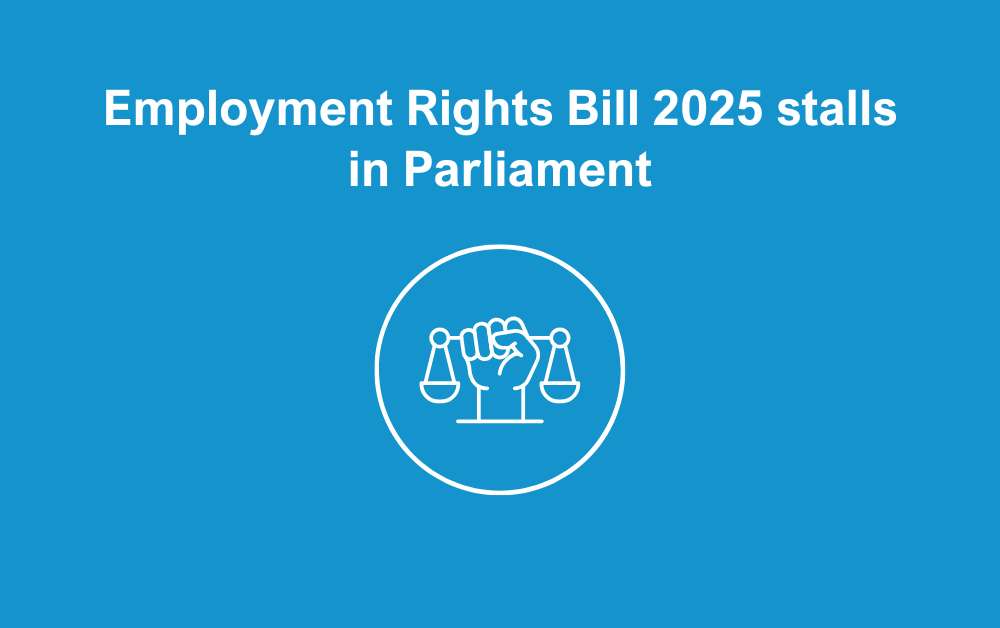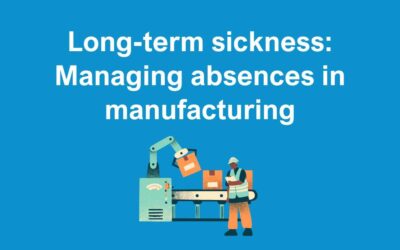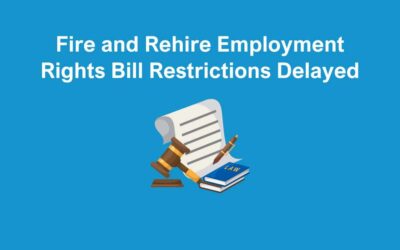There’s been another significant development in Parliament this week, as the Employment Rights Bill 2025 returns to the House of Commons following several rejections from the House of Lords. Key proposals such as the “day-one” right to unfair dismissal and guaranteed hours for zero-hours workers have been challenged, leaving employers facing more uncertainty over what the final legislation will look like.
At The HR Booth, we know many businesses are already feeling the strain of rising costs and constant change. That’s why we’re continuing to monitor developments closely and provide clear, practical guidance. Whatever happens next, our focus remains on helping employers stay compliant and informed through every stage of the Bill’s progress.
Development in Parliament
The Employment Rights Bill 2025 has once again hit a roadblock in Parliament. Earlier this week, the House of Lords rejected several key parts of the Bill and sent it back to the House of Commons for further debate. This process, often called “ping-pong”, means the Bill will move back and forth between the two Houses until an agreement is reached.
The main sticking points are significant and could reshape how employers manage their workforce:
-
Day-one right to unfair dismissal: Peers voted against giving employees unfair dismissal protection from their first day of employment. At present, staff need two years’ service to qualify, so this proposal would mark a major shift.
-
Guaranteed hours for zero-hours workers: The Lords also rejected a proposal that would have required employers to offer guaranteed hours from day one of employment, a move designed to protect casual and gig workers.
-
Industrial action thresholds: There was support to keep the existing 50% turnout requirement for strike ballots, rather than lowering the bar as some had suggested.
-
Union political levies: A proposal to make union members automatically pay political levies was turned down.
Because of these disagreements, the Bill’s progress has slowed. There’s no fixed timescale for when the process will conclude, and if the two Houses can’t agree before the end of the parliamentary session, the Bill could even fall completely.
For employers, this pause provides a small window to take stock — but it doesn’t mean the proposals are off the table. The government remains committed to introducing stronger employment protections, so while the exact details may change, businesses should expect reform to happen in some form.
Why Should Employers be Taking this Seriously?
The Employment Rights Bill 2025 could bring the biggest shake-up to employment law in years, and while Parliament is still debating the details, the overall direction is clear — more protections for workers and greater responsibilities for employers.
Key proposals include day-one unfair dismissal rights, meaning employees could be protected from dismissal from their first day, reducing flexibility during probation. There’s also debate over guaranteed hours for zero-hours workers, which could raise costs and limit flexibility, and union reforms that might make industrial action easier to organise.
For employers already managing rising costs, these changes could add further pressure. Even though the Bill isn’t finalised, now is the time to understand the potential impact, review your contracts and policies, and prepare for change rather than react to it.
Employment Rights Bill Roadmap Free Download
We’ve created an Employment Rights Bill Roadmap eBook of changes planned over the next couple of weeks. Get your copy on our website.
What’s Likely to Change
Looking at this parliamentary debate this week, it looks like it is very likely that changes will have to be made in order for the employment rights bill 2025 to progress through parliament. Key changes may include:
- A longer qualifying period than day one
- A more phased approach to guaranteed work
It’s important to keep in mind however, nothing is final. Until the bill is finalised, employers can only prepare as best as they can follow developments closely.
If the Bills fails in this session, changes may be delayed or the government may revisit in a future session.
What you can (and should) be doing now
Even though much of the detail is still up in the air, understanding what’s on the horizon will help you prepare and stay one step ahead. Here are steps to take:
- Review current contracts, policies and procedures now (especially around dismissals, zero-hours / variable hours, probation) so you are ready for changes ahead.
- A lot of the policies in the Employment Rights Bill 2025 are very much in the early stages of debate in parliament. Therefore, it is a good idea to hold off making any sweeping policy overhauls at this stage. However, you can start risk-mapping scenarios.
-
Contract and policy reviews to keep documents compliant and up to date
-
Manager training and webinars to explain what’s changing and how to respond
-
Audits of dismissal and probation practices to identify risks and ensure fairness
-
Workforce flexibility planning to review zero-hours and variable-hours arrangements
We know employers are managing tight budgets while facing ongoing legal changes. Our support is designed to be practical and affordable, helping you prepare for the Employment Rights Bill through:
-
-
Acting early even in uncertainty can help reduce risk, avoid last-minute scramble and control costs.
Look ahead: our commitment to you
We understand the pressure business owners are under at the minute with rising costs and change fatigue. Our team are following progress closely and we are here to provide practical, affordable, and tailored advice to keep you on the right side of the law.
Sign-up to our Free Employment Rights Bill Webinar
Sign-up to our webinar on our website
Conclusion
While some breathing space has emerged, the direction of travel for employment rights bill 2025 is still towards more protection for workers and more obligations on employers. Uncertainty is not a reason for inaction. With the right support now, employers can be ahead of the curve, control costs better and be ready when the legislation lands. If you have any questions around the Employment Rights Bill or would like to find out more about our webinars, get in touch with our HR Consultants.







